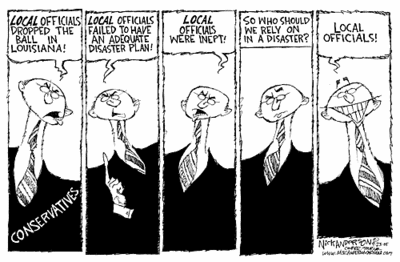 I have been thinking of Simon Wiesenthal’s book The Sunflower: On the Possibilities and Limits of Forgiveness in relation to the catastrophes that have plagued our nation over the past several years. Specifically, where does compassion and forgiveness, mercy and truth, fit into our nation’s life?
I have been thinking of Simon Wiesenthal’s book The Sunflower: On the Possibilities and Limits of Forgiveness in relation to the catastrophes that have plagued our nation over the past several years. Specifically, where does compassion and forgiveness, mercy and truth, fit into our nation’s life?After the September 11th attacks, we felt horror, outrage, anger, and then compassion for the victims. However, that quickly turned into fear and finger-pointing: it was as if we needed to blame someone other than the terrorists for what happened. Likewise with Hurricane Katrina: our compassion has been tempered by our need to find fault with someone other than Mother Nature.
In The Sunflower Wiesenthal reports a story that Josek, another Jewish prisoner in the concentration camp, told:
“Our scholars say that at the Creation of man four angels stood as godparents. The angels of Mercy, Truth, Peace, and Justice. For a long time they disputed if God ought to create man at all. The strongest opponent was the angel of Truth. This angered God and as punishment He sent him into banishment on earth. But the other angels begged God to pardon him and finally He listened to them and summoned the angel of Truth back to heaven. The angel brought back a clod of earth which was soaked in his tears, tears he had shed on being banished from heaven. And from this clod of earth the Lord God created man.”
I believe that discovering Truth is very important. If something went wrong in our defense against terrorists, it needed to be identified and corrected. If there were problems in the efforts to provide help and relief to the victims of Katrina, it needed to be discovered and we needed to learn from that data so that it will not be repeated with Hurricane Rita.
But that is not want seems to be happening. Rather, we seek scapegoats to blame and punish. And, we seem to seldom learn from the experience. It is as if once the “culprit” is identified and blamed—once we know “the truth”—and we feel satisfied that the fault lies not with us but with someone else, we expect the problem not to happen again because we have punished and replaced the culprit with someone new.
It is like dysfunctional families who, in therapy, seem to always have a member who is the “identified patient.” This is the person in the family who the other members consider the cause of the family’s problems. Once that person is “fixed,” the family believes everything will be O.K. Of course, that is never the case: in a dysfunctional family system, each member plays his or her own role in maintaining the status quo of the dysfunction. Fixing one person never solves the family's problems. Rather, all must change.
Seeking Truth and blaming the culprit never fixes the problem. And often the “culprit”—the identified scapegoat—has learned much from his or her mistakes. Learned so much, in fact, that that person may be the most qualified to make corrections. Yet we feel he or she must be punished for their action or lack of action. The problem often remains –and remains unchanged.
Back to Josek’s story: Truth is important—very important. But Truth may also be very subjective and needs to be balanced by Mercy and Justice if there is to be Peace (shalom). That’s a lesson I fear our nation has yet to learn.

I need to read that book!
ReplyDeleteI'm now reading this book - it's beautiful, a must-read for those of us bogged down in the minors of life!
ReplyDelete